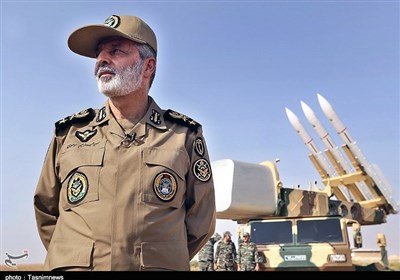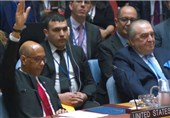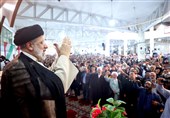Trump Sees Yemen War Bill An Affront to His ‘Authority’: US Analyst
TEHRAN (Tasnim) – A Middle East expert specializing in Yemeni affairs said US President Donald Trump probably sees a congressional bill to end US military involvement in Saudi Arabia’s ongoing aggression against Yemen as an “affront to his authority”.
“I’m not surprised by the veto. Trump probably sees Congress’ bill as an affront to his authority, which it is not, but the American diplomatic and military establishment is likely more concerned not about the war in Yemen but the erosion of support in Congress for the US alliance with Saudi Arabia…,” Dr. Charles Schmitz told Tasnim.
Dr. Charles Schmitz is a professor of geography at Towson University in Baltimore, Maryland where he has taught since 1999. Dr. Schmitz is a specialist on the Middle East and Yemen. He began his academic career as a Fulbright Scholar and American Institute for Yemeni Studies fellow in Yemen in the early 1990s. Dr. Schmitz's current research interests include the political economy of development in Yemen, international law and the counter-terror policy, international governance and failing states, and the sociology of contemporary Yemeni society. Currently, he is vice president of the American Institute for Yemeni Studies and a member of the board of the Council of American Overseas Research Centers.
Following is the full text of the interview.
Tasnim: President Trump on Wednesday vetoed a bill Congress passed to end US military assistance in the Saudi Arabia-led war in Yemen. What’s is your take on the veto by Trump?
Schmitz: I’m not surprised by the veto. Trump probably sees Congress’ bill as an affront to his authority, which it is not, but the American diplomatic and military establishment is likely more concerned not about the war in Yemen but the erosion of support in Congress for the US alliance with Saudi Arabia. The bill calls for the withdrawal of support only for the war in Yemen, not for the Saudis in general, but some in Congress were calling for an arms embargo on the Kingdom itself.
Tasnim: According to media reports, the US Congress has grown uneasy with the president's close relationship with Saudi Arabia. The lawmakers criticized Trump for not condemning Riyadh for the killing of Jamal Khashoggi. What is the reason behind this close relationship?
Schmitz: Trump is clearly taken by the Saudi leadership, and the Saudi leadership is important for Trump’s plan for the Middle East, especially his deal of the century in Palestine/Israel and his conflict with Iran. Trump and the Saudi leadership share strong common interests.
Tasnim: Sen. Tim Kaine, a member of the Senate Foreign Relations Committee, said in a statement that the veto was "part of an alarming pattern of Trump turning a blind eye to Saudi Arabia’s actions that fly in the face of American values" and accused the administration of "deference to Saudi Arabia at the expense of American security interests." Do you believe so?
Schmitz: The senator is playing politics. He wants to link Trump with bin Salman’s arrogance. The actions to which he refers are the killing of Khashoggi and perhaps the jailing of the opposition, but there are deeper tensions that the senator would like to ignore. The Saudis are key US allies in the region, but their government and society do not share key American values of democracy and equality. What Congress is really upset about is that bin Salman’s actions highlight a deeper tension that the US and Saudi Arabia would like to ignore.






